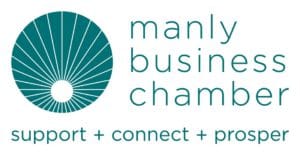Hobbies – Should You Use Them or Lose Them on a Résumé?
Jacqueline Fink of Little Dandelion in Balgowlah is an extreme knitter, as you may have read recently. She uses giant knitting needles and balls of wool to create a range of stunning knits, including blankets, throws and wall hangings. And social media has spread the love for her beautiful craftwork, spawning a whole community of extreme knitters around the globe. Fink’s is an unusual hobby, that’s for sure, and it got us thinking about the subject of including hobbies on résumés. Should you or shouldn’t you?
Opinion varies from one recruiter to the next. For some, personal interests are a big no-no: they are considered to be irrelevant – an unnecessary distraction on a formal business document. This group of recruiters won’t give your interests a second glance, choosing to focus instead on the professional experience and skills you would bring to a role.
Other recruiters may look at your hobbies as part of your overall application for a job. And there are two important reasons why:
- Relevant skills: Your hobbies may suggest that you have some of the desired qualities for the role. This can be useful for job applicants, particularly those who have limited professional experience. A candidate applying for a junior management role may be captain of their local football team, for example. Someone applying for work as an apprentice mechanic may enjoy tinkering with engines in their spare time.
- Adaptability: Showcasing a broad range of interests in a résumé can potentially be a benefit, especially for client-facing roles, like law and accountancy, where candidates need to build relationships with people from different backgrounds at different levels of seniority.
In a recent article in The Sydney Morning Herald, Jim Bright, Professor of Career Education and Development at ACU, suggests looking at the evidence, rather than opinion. He conducted a study about the presence or absence of hobbies on résumés with a large recruitment company in Australia. After sampling no less than 999 résumés, this was the team’s conclusion: “What we found was that the hobbies made precisely no difference whatsoever to hiring decisions.” Bright suggests that candidates lose the hobbies off their résumés and use the space for content that will increase their chances of getting shortlisted. Many recruiters and candidates would disagree. Hobbies remain a very subjective issue.
Should you choose to include your interests on your résumé, here are a few tips to consider:
- Keep them until the end: Make sure you cover your professional experience and skills first.
- Include some detail: Don’t just list your interests; add a little information that sells them to your recruiter.
- Have something to say about your interests at interview.
So back to Jacqueline Fink, the extreme knitter from Little Dandelion we met at the beginning of this post. Instead of writing “extreme knitter” on her résumé and leaving it at that, she could perhaps expand along these lines: “I am passionate about extreme knitting – using super-size needles and wool to create unique objects and installations.” Would it give her the edge in landing the role? Possibly – and then again – possibly not. So much depends on the individual recruiter.
What is your view? Do you think you should use or lose hobbies on a résumé?











Leave a Reply
Want to join the discussion?Feel free to contribute!